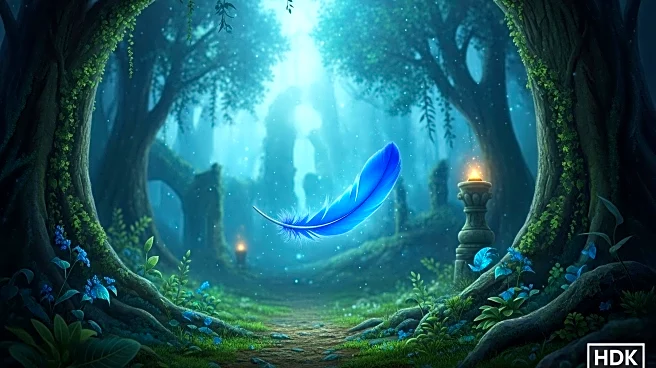What's Happening?
Zelda Williams, daughter of the late comedian Robin Williams, has voiced strong opposition to AI-generated videos that mimic her father's likeness. In a recent Instagram story, she criticized these digital recreations, describing them as disrespectful and a misuse of technology. Zelda's comments follow the release of OpenAI's Sora2, a tool that enables users to create AI versions of deceased celebrities. She argues that these recreations reduce her father's legacy to mere digital imitations, which she finds personally disturbing and ethically questionable. This issue is part of a larger trend of using AI to generate content featuring deceased public figures, raising concerns about consent and the preservation of artistic integrity.
Why It's Important?
Zelda Williams' critique underscores the ethical challenges posed by AI in the entertainment industry. The ability to digitally recreate deceased individuals without their consent raises significant questions about the rights of individuals and their estates. This development could have far-reaching implications for how the entertainment industry manages the legacies of artists and public figures. It also highlights the need for clearer guidelines and regulations to address the ethical use of AI in media. As technology continues to advance, stakeholders in the industry may need to navigate the balance between innovation and respect for personal and artistic legacies.
What's Next?
The ongoing debate about AI-generated content may lead to increased scrutiny and potential regulatory action. Industry groups and advocacy organizations could push for policies that protect the rights of individuals and their families in the digital age. Technology companies may face pressure to implement opt-out mechanisms and ensure that AI tools are used ethically. The entertainment industry might also see a shift towards more responsible AI practices, as it seeks to balance technological advancements with ethical considerations. Public discourse on this issue could influence future legislation and industry standards.
Beyond the Headlines
The ethical concerns raised by AI-generated content extend beyond the entertainment industry, touching on broader cultural and legal issues. The use of AI to recreate deceased individuals challenges existing intellectual property laws and raises questions about digital immortality. This development could lead to a reevaluation of how society values and protects personal identity in an increasingly digital world. It also prompts a discussion about the role of technology in shaping our memories and interactions with historical figures.









